Disclaimer: As an Amazon Associate I earn from qualifying purchases. Therefore, we may collect a share of sales from the links on this page, at no extra cost to you!
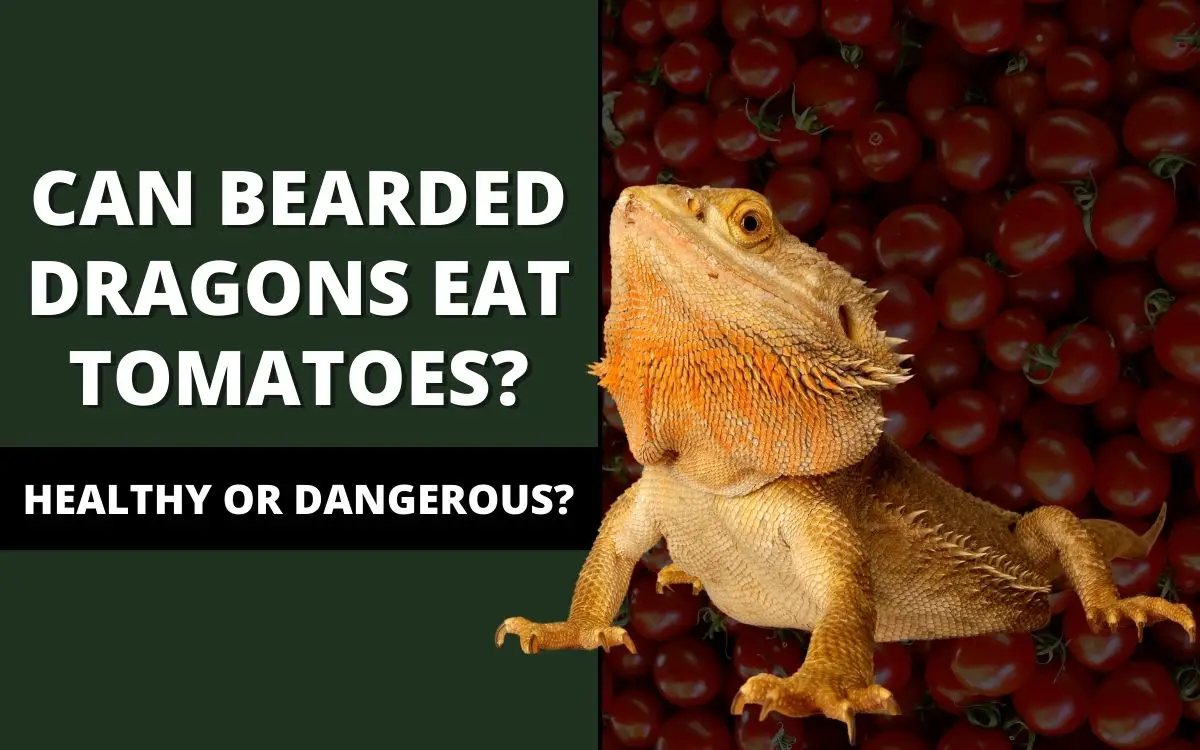
Can Bearded Dragons Eat Tomatoes? (The TRUTH)
You’re probably here because you’re wondering – can bearded dragons eat tomatoes?
Bearded dragons require a broad diet composed of different protein-rich bugs and vitamin-rich veggies.
However, many people are unaware of all of the different veggies they are able to feed their bearded dragons. Some veggies are dangerous, such as spinach and avocados – whistle others are healthy, such as squash and celery.
So, that brings us back to our question – can bearded dragons eat tomatoes?
Well, here’s the simplified answer:
Yes, bearded dragons can enjoy a sliced tomato from time to time. Not only is it a delicious treat, but it is also high in Vitamins A, E, and C. However, you should keep this treat to a maximum of once per week due their lack of calcium and high levels of phosphorous.
It’s important to understand that tomatoes are not the perfect vegetable for your bearded dragon. They definitely have their pros and cons – which we’ll get to in a bit.
Additionally, we’re going to discuss how to safely prepare tomatoes for your beardie, how often you can feed them, and what age you can start feeding them.
We’re also going to go over the 5 best veggies for your bearded dragon; veggies that will keep your bearded dragon in perfect health and alive for years to come!
Keep reading to learn more!
Table of Contents
Nutritional Facts for Tomatoes
Before we understand the pros and cons of feeding your bearded dragon tomatoes, we first need to dive into the nutritional facts.
This will help us determine what’s good for your beardie – and what’s not.
The graph below indicates the nutritional facts of tomatoes:
Health Benefits of Feeding Your Bearded Dragon Tomatoes
Bearded dragons, like almost any living creature, require a specific amount of vitamins and nutrients in order to stay healthy.
So, before we delve into the risks of feeding your bearded dragon tomatoes, let’s discuss some of the health benefits.
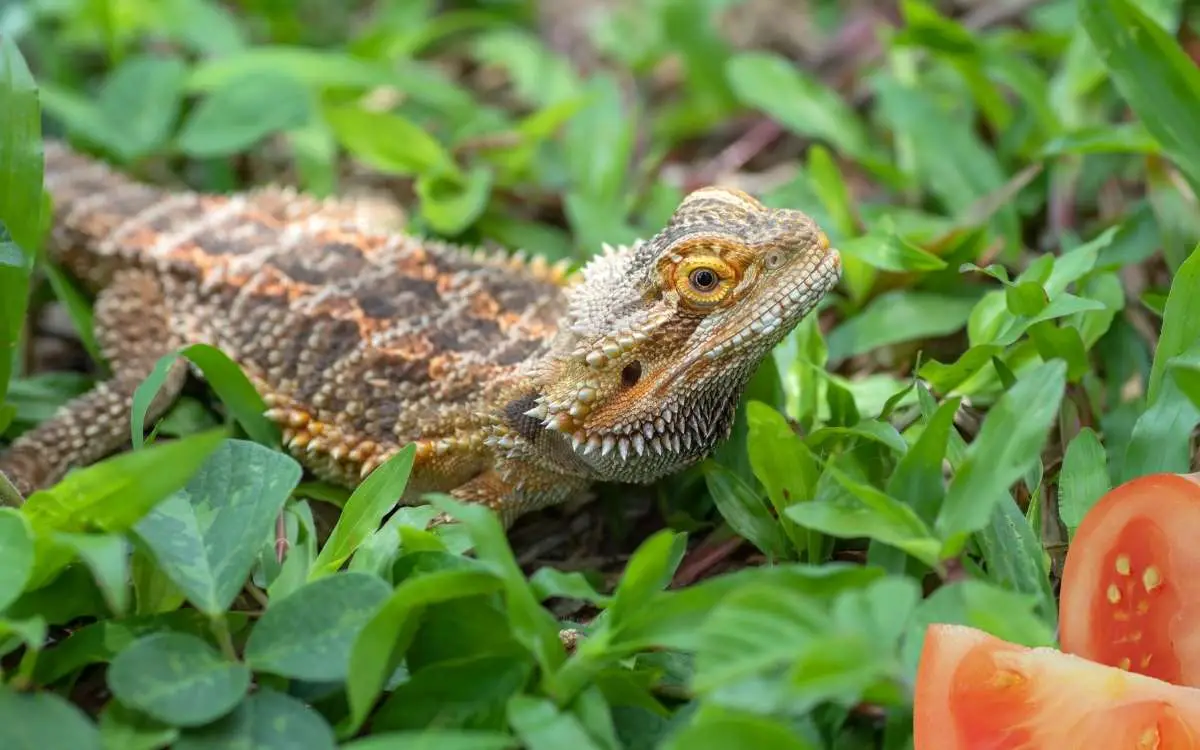
Vitamin A
Fortunately, tomatoes contain high levels of vitamin A – which is great for your bearded dragon.
Vitamin A serves a vital role in a bearded dragons vision, immune system, and reproduction. Therefore, if you want to keep your bearded dragons vision up to par, help it fight infection, and be able to reproduce, you should definitely be giving your beardie veggies that are rich in Vitamin A.
Additionally, Vitamin A supports overall bone health, which, as you probably already know, is crucial for bearded dragons. Bearded dragons are highly susceptible to a deadly disease called MBD, or Metabolic Bone Disease. This painful disease weakens the bone structure of a bearded dragon and can eventually lead to death. Although calcium is much more important than Vitamin A when it comes to keeping your beardies bones strong, it can definitely help.
Finally, Vitamin A supports many of your bearded dragons primary organs. This includes the heart, lungs, kidneys, and more. It can also assist in the growth of a baby bearded dragon.
If you’re not already feeding your bearded dragon food sources that are rich in Vitamin A – don’t worry – we’re going to discuss 5 of the best vegetables that are plentiful in Vitamin A later on.
Vitamin E
Additionally, tomatoes contain an amazing little vitamin called Vitamin E.
Vitamin E also serves an important role in the health of your bearded dragon. It promotes the ability to heal wounds, supports heart health, and can even help prevent disease.
It has also been thought that Vitamin E can assist in the shedding process. Most bearded dragons don’t have too many problems with shedding, but occasionally they will experience something commonly referred to as “stuck shed”.
Stuck shed, as the name implies, refers to your bearded dragon struggling to rid its shed. This loose, dead skin can pull on the new skin underneath your bearded dragon and lead to pain and scarring.
Although there’s various ways to help bearded dragons with stuck shed, it may be worth increasing your bearded dragons vitamin E intake to prevent the problem from ever occurring.
Vitamin C
Furthermore, tomatoes are a great source of vitamin C which is crucial for the health of your bearded dragon.
Vitamin C is an antioxidant vitamin which improves iron absorption and keeps your bearded dragons dental health in tip-top shape.
Additionally, vitamin C boosts immunity to disease by encouraging the growth of white blood cells and helping those white blood cells function more efficiently.
Also, if your bearded dragon suffers from an injury, it will be more likely to heal its wounds more quickly.
Unfortunately, a deficiency in vitamin C can lead to nasty consequences. This may include bleeding from the gums, softening of the skin, and mouth rot.
So, you want to be sure to feed your bearded dragon foods that are rich in Vitamin C – otherwise, you may run into some nasty health issues.
Hydration
Although most bearded dragons aren’t big on drinking from a water dish, they do require hydration. Usually, this comes in the form of their veggies. Fortunately, tomatoes contain a fair amount of water – keeping your bearded dragons nice and hydrated.
You definitely want to make sure to keep your bearded dragon hydrated. Otherwise, it can lead to some nasty side effects including sunken eyes, sunken fat pads, a droopy face, and wrinkled skin. If you’re not giving you bearded dragon the proper levels of hydration, it could even lead to death. This is why it’s important to give your bearded dragon a diet composed of around 20% vegetables.
Tomatoes Contain Little Sugar
Unlike many other fruits and vegetables, tomatoes contain very little sugar. As you probably already know, sugar is unhealthy for just about any living creature, including humans.
So, something like watermelon, for instance – a fruit that contains high amounts of sugar – may be perfectly safe for us humans. In fact, we can eat watermelon every day with no issues at all.
However, for a tiny little bearded dragon that only weighs a few grams, eating too much watermelon may lead to dangerous consequences.
Luckily, unlike watermelon, tomatoes also contain high levels of vitamins – but don’t contain the dangerous levels of sugar found in watermelon.
This is very advantageous in the fact that you can feed your bearded dragon tomatoes on a fairly regular basis without having to worry about the dangerous consequences of sugar.
Tomatoes Contain Little Oxalic Acid
Oxalic Acid is a toxic compound found in a variety of different vegetables such as spinach, beets, and kale.
Although these vegetables are generally considered healthy, they contain high levels of oxalic acid.
While humans can eat a considerable amount of oxalic acid while being just fine, small levels of oxalic acid can be extremely harmful for a bearded dragon.
It can cause digestive issues, prevent calcium from being absorbed in the body, and in high amounts, lead to death.
Luckily, tomatoes contain very low levels of oxalic acid. So, while there are certain veggies you should avoid solely for this reason, tomatoes are not one of them.
Health Risks of Feeding Your Bearded Dragon Tomatoes
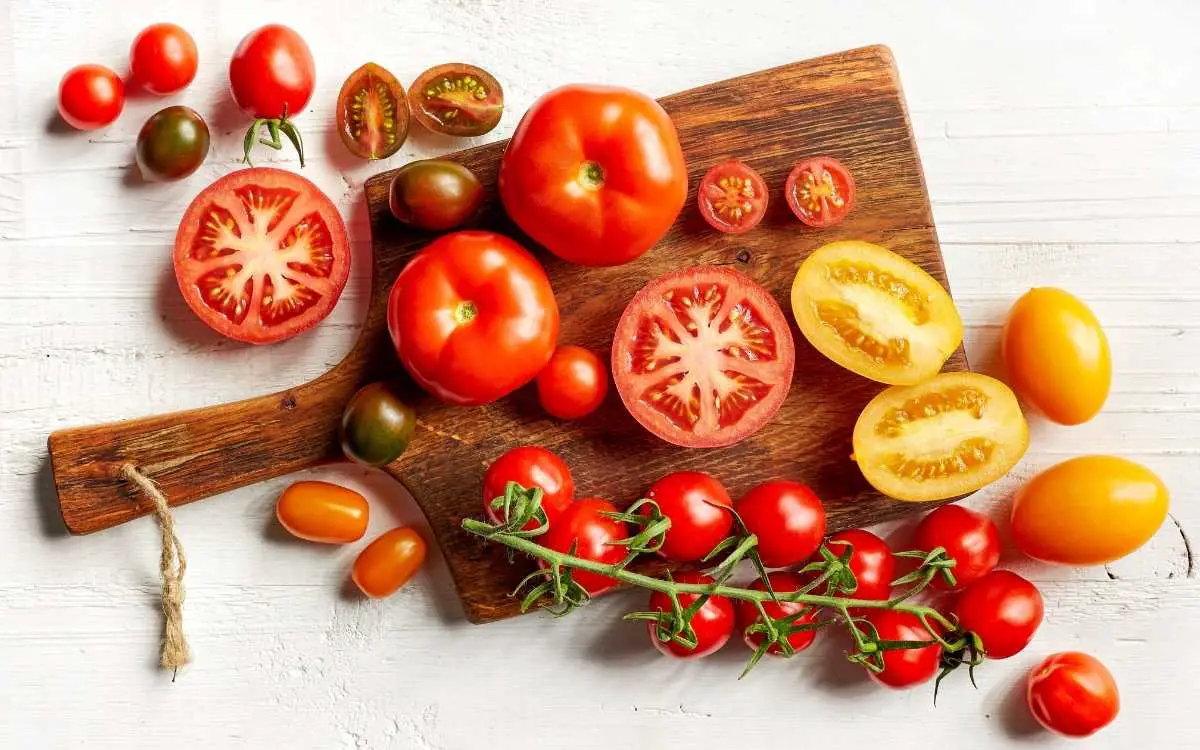
Although tomatoes contain plenty of health benefits, that does not mean they don’t come with their health risks.
Below is a list of some of the health risks associated with feeding your bearded dragon tomatoes.
Tomatoes Are Low in Calcium
Although tomatoes provide an excellent source of vitamins A, E, and C – they provide little to no calcium for your bearded dragon.
As we discussed earlier, bearded dragons require calcium in order to maintain a healthy bone structure and avoid Metabolic Bone Disease. Consequently, calcium is especially important in baby bearded dragons who are still growing and developing.
So, even though tomatoes are healthy for bearded dragons, you should keep them to a minimum and they should not replace the calcium-rich foods in your bearded dragons diet.
Tomatoes Don’t Have the Proper Calcium-Phosphorus Ratio
There are plenty of foods that contain calcium, but also contain high levels of phosphorus. Fruits are the most common example of a food that has an incorrect calcium to phosphorus ratio.
So, why does it matter how much phosphorus is in certain foods?
Good question. Basically, phosphorus attaches itself to calcium and prevents it from being absorbed in the body.
Therefore, if you gave your bearded dragon a food that has a calcium-phosphorus ratio of 1:1, it would essentially receive no calcium benefit from that particular food.
Unfortunately, tomatoes contain a calcium to phosphorus level of 1:6, which means your bearded dragon would receive zero benefits from the calcium found in tomatoes.
Reptiles Magazine recommends a calcium-phosphorus ratio between 1.5:1 and 1.5:2. However, this is highly dependent on the age of your bearded dragon. Young bearded dragons require a much different calcium-phosphorus ratio then compared to an older bearded dragon.
Below is a chart with the recommended calcium-phosphorus ratio based on the age of a bearded dragon.
However, just because tomatoes do not contain the recommended calcium-phosphorus ratio, this does not mean your beardie can’t have tomatoes as an occasional treat. It’s just important not to overdo it because they won’t be receiving any calcium from eating tomatoes.
How Often Can You Feed Your Bearded Dragon Tomatoes?
So, now that we’ve went over the pros and cons of feeding your bearded dragon tomatoes, you’re probably wondering – how often can bearded dragons eat tomatoes?
Great question! Generally speaking, you can feed your bearded dragon tomatoes once per week. However, this number will depend on the age and health of your bearded dragon.
For instance, older bearded dragons don’t require the same calcium intake that a growing bearded dragon does. Therefore, they can more-regularly handle foods that are lower in calcium – such as tomatoes.
If your bearded dragon has Metabolic Bone Disease or suffers from a calcium-deficiency, you probably shouldn’t feed them tomatoes at all; at least until their health is in-check.
Can Baby Bearded Dragon Eat Tomatoes?
Baby bearded dragons can eat tomatoes, but we don’t recommend overdoing it. Baby bearded dragons are still developing and require a calcium-rich diet. Therefore, because tomatoes provide little to no calcium benefit, you should only feed tomatoes as an occasional treat – around once per month.
The main focus of your baby beardies diet should be protein-rich insects such as crickets, mealworms, and kingworms. Bugs should make up a total of 75-80% of your baby bearded dragons diet.
On the other hand, fruits, greens, and vegetables should make up the remaining 20-25% of your bearded dragons diet.
How to Prepare Tomatoes for Bearded Dragons to Eat
So, now that you know bearded dragons can eat tomatoes – lets dive into detail on how to best prepare them!
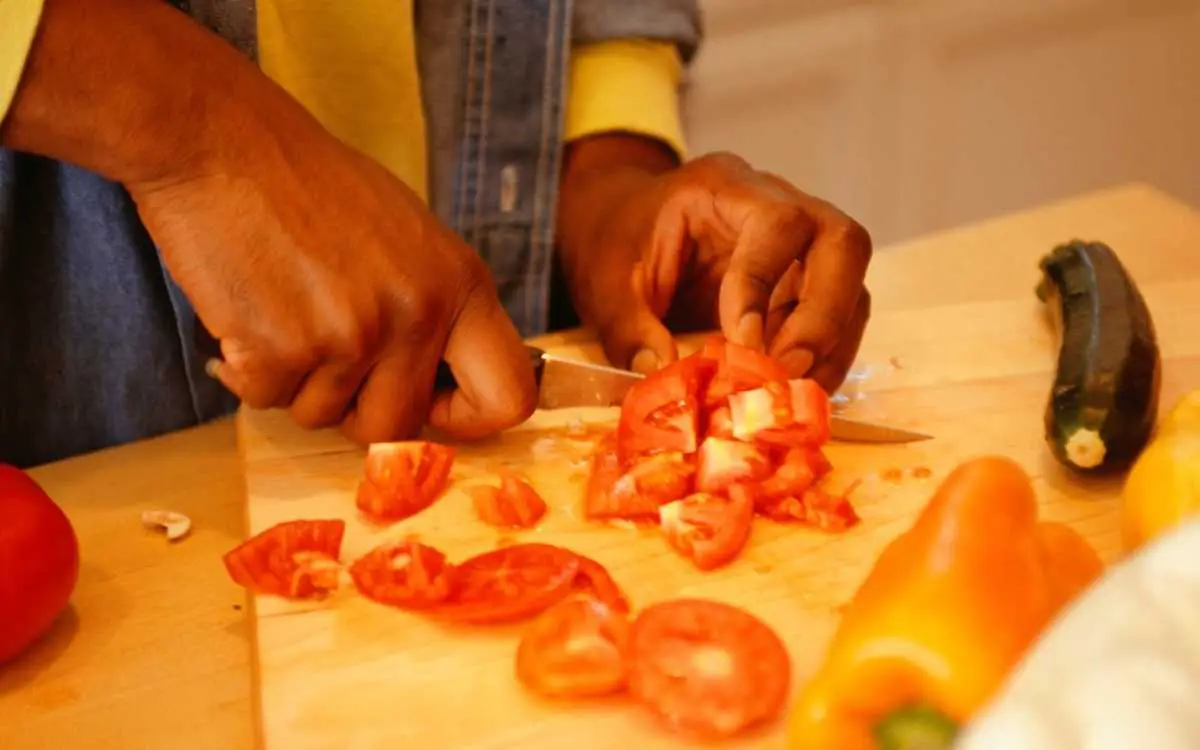
Step 1: Purchase your tomatoes
We recommend buying your tomatoes from an organic food store to ensure you’re getting a fresh tomato that is free of any chemicals or other artificial growth tactics.
Step 2: Wash your tomatoes
This is very important because tomatoes can have pesticides or herbicides. Although these pesticides may have little effect on a humans, they can have a much more severe effect on a small bearded dragon.
Step 3: Gather a small bowl or plastic container
Obviously, you want to put the tomatoes in a food dish or container of some sort. You should already have a veggie dish for your bearded dragon. Using this is perfectly acceptable. However, whatever type of dish you decide to use, make sure it is cleaned out beforehand!
Step 4: Slice and chop your tomatoes
The next step is to chop up your tomatoes. This will be a little different than if you were to prepare yourself a tomato. Obviously, bearded dragons have pretty small mouths and the last thing you would want is to cause your bearded dragon to choke on a piece of tomato.
The general rule of thumb is to not feed your bearded dragon something that is bigger than the width between their eyes. Therefore, you’re going to want to chop up your tomatoes in very small pieces, especially if they are young. You can also crush up the tomatoes if you’d like.
Step 5: Feed Your Bearded Dragon
Now that you have your tomatoes chopped up and ready to serve, you’re good to go! Put your food bowl in your bearded dragons enclosure and watch them munch down. Of course, you can also mix in the tomato slices with your bearded dragons normal veggies.
Can Bearded Dragons Eat Cherry Tomatoes?
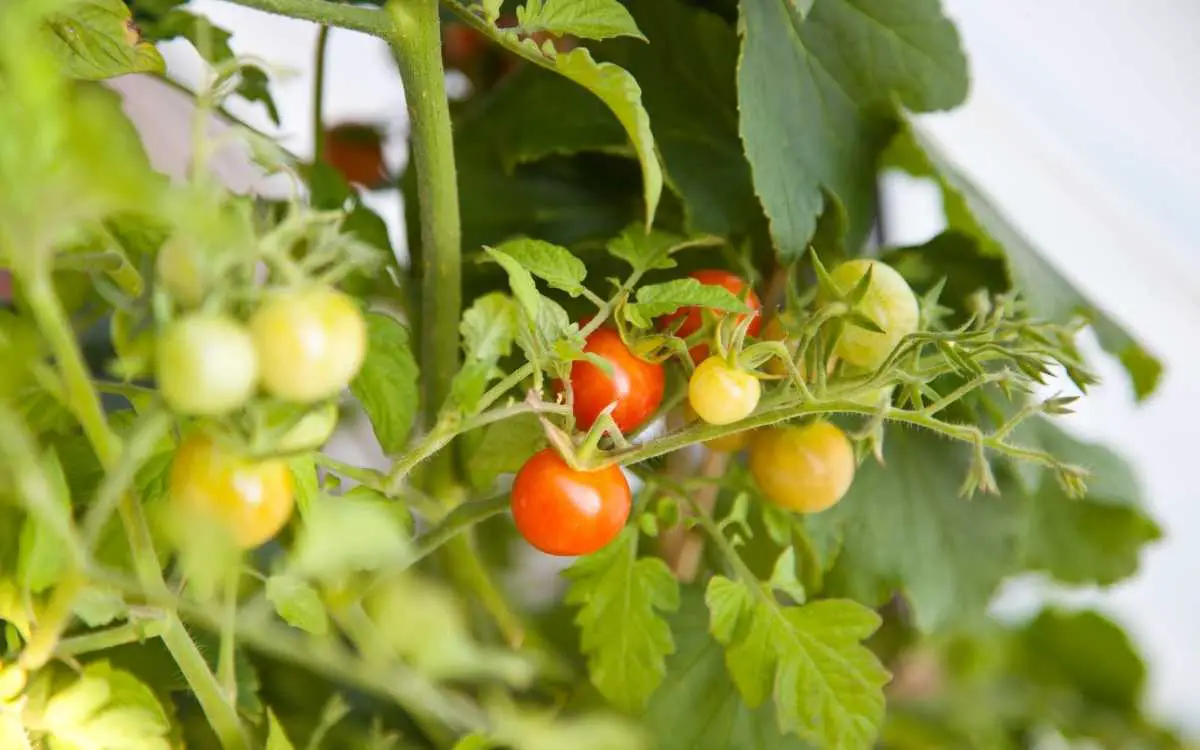
So now that you know bearded dragons can eat tomatoes – your next question probably is – can bearded dragons eat cherry tomatoes?
Well, when it comes to nutritional values, regular tomatoes and cherry tomatoes look very similar. Both have a good amount of vitamin C and A, and they are both low in calcium.
However, cherry tomatoes may be a bit better for your bearded dragon and here’s why:
Cherry tomatoes are better for bearded dragons than regular tomatoes because they contain higher levels of water (meaning more hydration). Furthermore, cherry tomatoes are smaller, easier to eat, and they’re a lot crunchier. The crunchiness of cherry tomatoes will help clean the plaque from your bearded dragons teeth.
Therefore, cherry tomatoes will help hydrate your beardie as well as help remove plaque from your beardies teeth. Therefore, cherry tomatoes are also a great option for your bearded dragon.
Although, even though they are small in size, be sure to chop them up still!
Can Bearded Dragons Eat Tomato Worms?
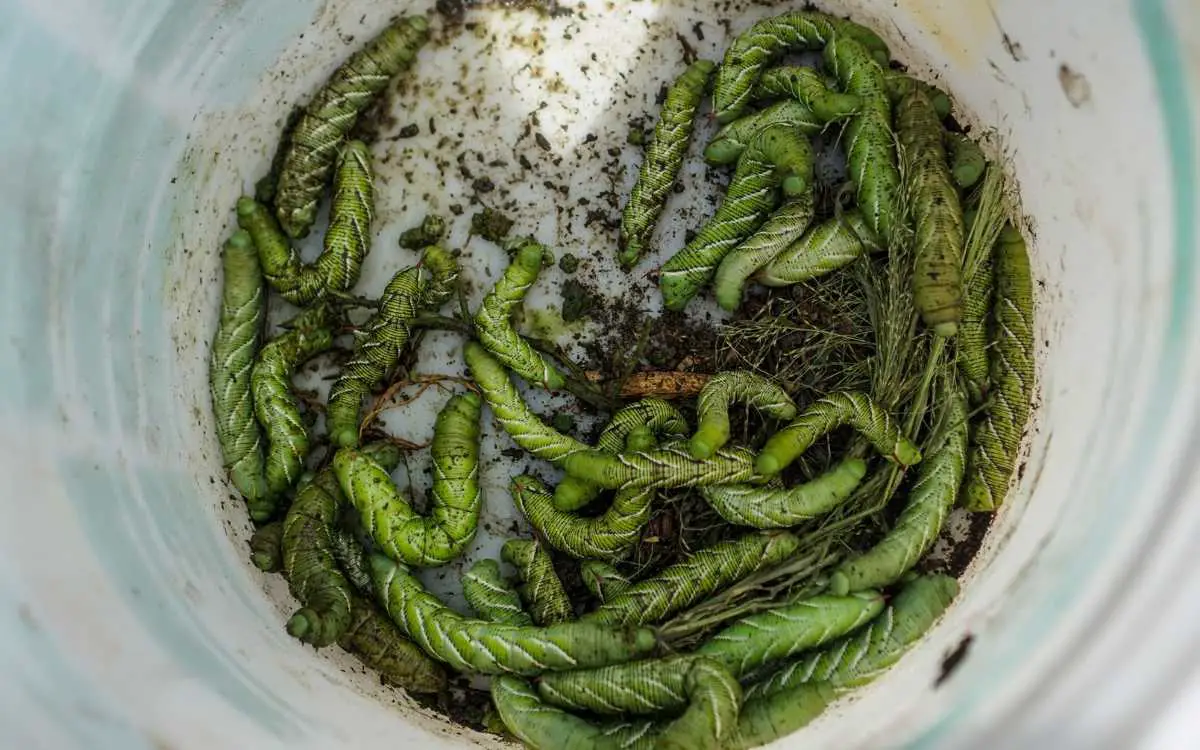
Tomato worms, also known as hornworms or tomato hornworms – are also a common food that people feed their bearded dragons.
Although they shouldn’t be fed as a primary diet source, tomato worms can make for an excellent treat!
Tomato worms are very fat and contain tons of protein. Furthermore, they provide an excellent source of calcium.
The only downfall to feeding your bearded dragon tomato worms is their fat content. If you feed too many of these guys to your bearded dragon, they may become overweight!
5 Vegetables That Will Keep Your Bearded Dragon Alive Forever
Although tomatoes can be an awesome treat for your bearded dragon, they do have a few cons.
So, what are the 5 best vegetables for your bearded dragon?
Let’s find out!
1. Acorn Squash
Acorn squash is an amazing vegetable that will keep your bearded dragons health in peak shape.
It is rich in fiber, vitamin C, magnesium, and potassium. It also have various plant compounds that will promote your bearded dragons overall health.
In addition, acorn squash is very crunchy, which is great for your bearded dragons teeth. Many foods, such as waxworms, silkworms, and many fruits can actually get caught in your bearded dragons teeth. However, acorn squash is very crunchy and will help break up this buildup of soft foods that are stuck in your bearded dragons gums and teeth.
You can feed your beardie acorn squash four to five days a week.
2. Escarole
Escarole is a type of lettuce that should be a staple in every bearded dragons diet.
Not only is it an amazing source of hydration, it contains very high amounts of vitamin A, vitamin C, iron, fiber, protein, and calcium.
Furthermore, escarole is low in phosphorus, low in oxalates, and high in calcium. This is why escarole is by far one of the best vegetables you can feed your bearded dragon.
Like we mentioned, this should be a staple in your bearded dragons diet and can be fed every day of the week.
3. Bell Pepper
Bell peppers are a lesser-known vegetable for feeding bearded dragons, but they contains numerous health benefits!
First off, they’re low in fat and calories. You definitely don’t want to be feeding your bearded dragon foods that will lead to obesity.
Next, they’re an excellent source of vitamin B6, K1, C, and E making them an excellent choice to keep your bearded dragons bones strong! They also contain iron and magnesium which are great for the muscles, maintaining body temperature, and brain function.
Bell peppers can’t be fed daily, but they can definitely make an excellent treat every few days!
4. Dandelion Greens
Dandelion greens are another excellent vegetable that should be a staple in every bearded dragons diet. They contain a plethora of different vitamins and nutrients.
First, they provide an excellent source of calcium. Like we discussed earlier, a lot of fruits and vegetables, including tomatoes, contain a poor calcium to phosphorus ratio.
However, dandelion greens have an excellent calcium-phosphorus ratio of 1.5:1. If you’re looking for an excellent source of calcium, dandelion greens are the way to go!
Moreover, dandelion greens contain other vital nutrients such as vitamins A and K. Vitamin A supports overall bone health, reproduction, and growth in baby bearded dragons. Vitamin K helps with ability to heal wounds and also supports overall bone health.
5. Turnip Greens
The last vegetable that made our list of the best vegetables for bearded dragons is turnip greens. Although you can’t feed your bearded dragon turnip greens daily, they pack a ton of nutrients – making them an incredible treat!
Turnip greens, similar to dandelion greens, contain high levels of calcium. Furthermore, turnip greens have a healthy calcium to phosphorus ratio of 4:1, which is absolutely amazing!
Finally, turnip greens contain high levels of vitamins A and C. As we discussed, vitamin A supports overall bone health and reproduction. It also helps in the growth process of baby bearded dragons.
Final Thoughts
Hopefully, you feel a bit more confident in the foods you can feed your bearded dragon!
In terms of tomatoes, bearded dragons love how they taste – but they should be fed a limited amount due to their acidity and poor calcium content. However, they do make amazing treats that are packed with amazing vitamins and nutrients.
However, there are plenty of other amazing foods you can feed your bearded dragon as well. This includes acorn squash, escarole, bell pepper, dandelion greens, and turnip greens. These vegetables are packed with vitamins and will help your bearded dragon stay in perfect health!
Anyways, thanks for reading and be sure to check out our other bearded dragon guides to become a more-educated beardie owner!
